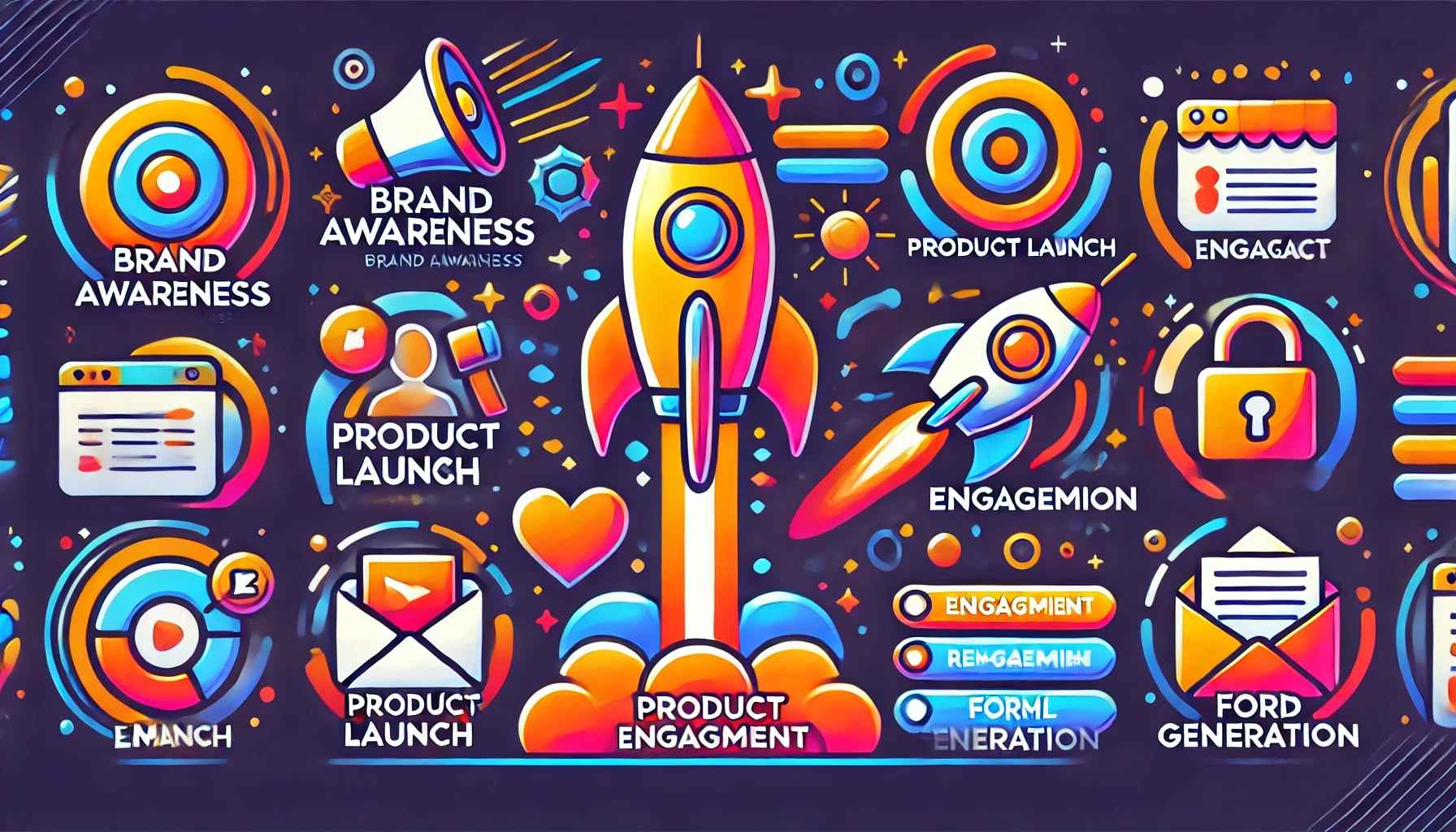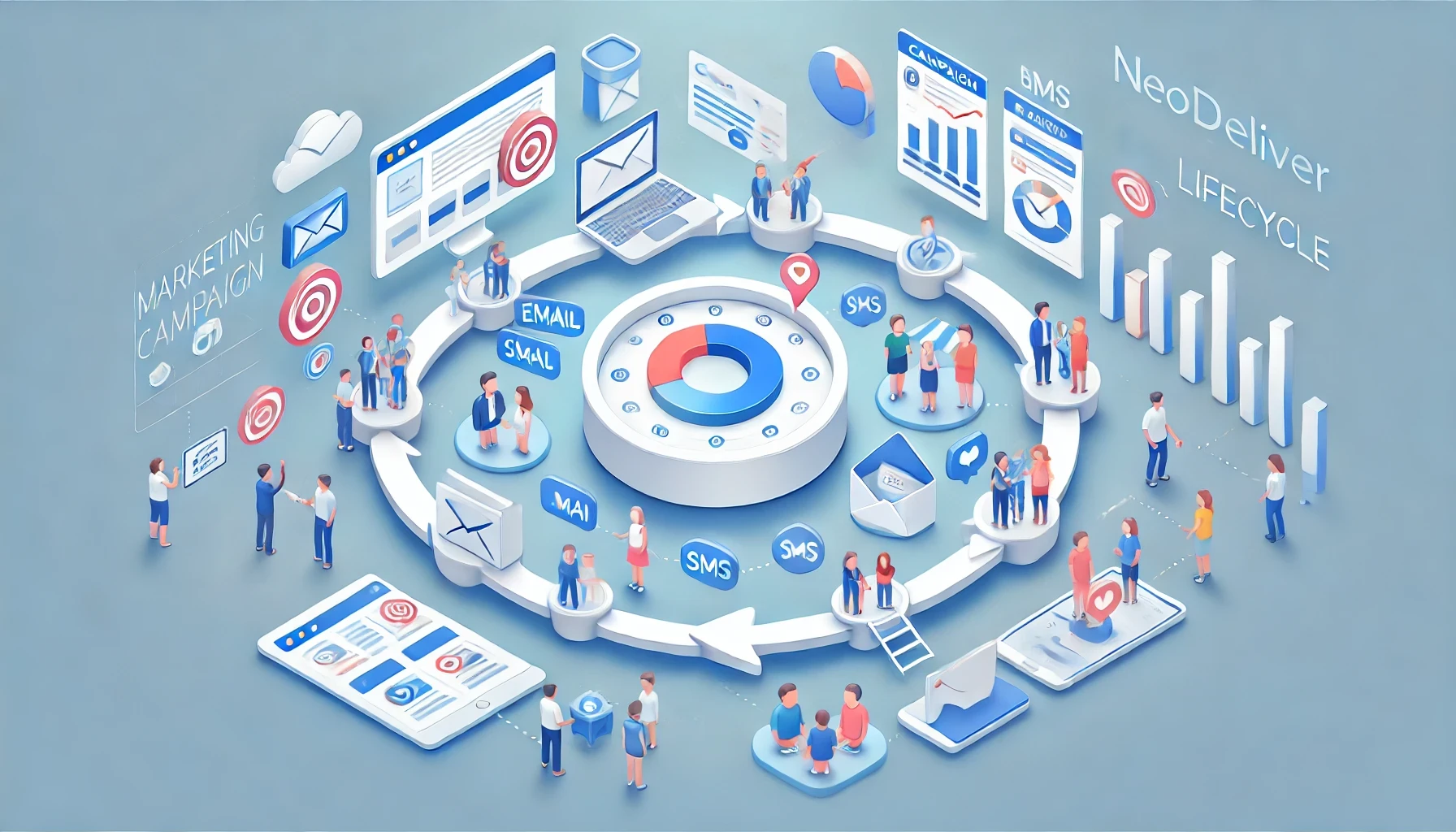Marketing campaigns are powerful tools to connect with your audience, build brand awareness, and drive action. But not all campaigns are created equal—different types serve different purposes depending on your goals, audience, and channels. Whether you're a seasoned marketer or a beginner, understanding the various types of marketing campaigns is key to developing a successful strategy.
In this article, we’ll explore the most common types of marketing campaigns, their benefits, and when to use them.
1. Brand Awareness Campaigns
Purpose: To introduce your brand to a wider audience and establish a strong presence in your market.
Brand awareness campaigns focus on getting your name, values, and offerings in front of potential customers. They’re especially valuable for startups or businesses launching new products.
Channels:
Social media ads
Display ads
Content marketing (e.g., blog posts, videos)
Example: A new coffee shop launching an Instagram campaign showcasing its cozy ambiance, specialty drinks, and friendly staff.
2. Product Launch Campaigns
Purpose: To build excitement and awareness for a new product or service.
Product launch campaigns create buzz, encourage pre-orders, and drive initial sales. They typically include teasers, exclusive previews, and offers.
Channels:
Email marketing
Social media teasers
Landing pages
Example: A tech company unveiling a new smartphone through teaser videos, influencer partnerships, and countdown emails.
3. Promotional Campaigns
Purpose: To drive short-term sales or engagement through discounts, deals, or time-limited offers.
Promotional campaigns are ideal for clearing inventory, celebrating milestones, or encouraging impulse purchases.
Channels:
Email blasts
SMS marketing
Social media ads
Example: A fashion retailer offering a “Buy One, Get One Free” deal during the holiday season.
4. Engagement Campaigns
Purpose: To foster relationships with your audience by providing valuable, interactive, or entertaining content.
Engagement campaigns help keep your brand top-of-mind and build trust with your audience.
Channels:
Social media posts (polls, quizzes, and challenges)
Newsletters
Webinars or live Q&A sessions
Example: A fitness app running a social media challenge encouraging users to share their workout progress with a branded hashtag.
5. Re-Engagement Campaigns
Purpose: To reconnect with inactive customers or subscribers and encourage them to return.
Re-engagement campaigns often include incentives or reminders to reignite interest.
Channels:
Personalized emails
Push notifications
Retargeting ads
Example: An e-commerce store sending a “We Miss You” email offering a discount to customers who haven’t purchased in six months.
6. Lead Generation Campaigns
Purpose: To attract potential customers and capture their contact information for future nurturing.
Lead generation campaigns are a crucial part of building your sales funnel. They typically offer value in exchange for information, such as an email address.
Channels:
Landing pages
Social media ads
Webinars
Example: A software company offering a free eBook on productivity tips in exchange for signing up on a landing page.
7. Drip Campaigns
Purpose: To nurture leads or guide users through a specific journey using automated, pre-scheduled messages.
Drip campaigns are ideal for onboarding, educating, or upselling customers over time.
Channels:
Email marketing
SMS marketing
Example: A SaaS company sending a series of emails to onboard new users, starting with “Welcome” and progressing to “How to Use Advanced Features.”
8. Seasonal Campaigns
Purpose: To capitalize on specific holidays, events, or seasons to drive engagement and sales.
Seasonal campaigns leverage the excitement around holidays like Christmas, Valentine’s Day, or Black Friday.
Channels:
Social media
Email
Print or digital ads
Example: A chocolate brand promoting heart-shaped boxes for Valentine’s Day with “Share the Love” messaging.
9. Customer Retention Campaigns
Purpose: To keep existing customers engaged and encourage repeat business.
Retention campaigns focus on rewarding loyalty and reminding customers of your value.
Channels:
Loyalty programs
Personalized offers
Subscription renewal reminders
Example: A streaming service offering a discount for annual subscribers who renew early.
10. Event Marketing Campaigns
Purpose: To promote an upcoming event and drive attendance.
These campaigns are effective for webinars, product demos, or in-person gatherings.
Channels:
Email invites
Social media ads
Event landing pages
Example: A software company promoting a free webinar on “AI Trends for 2024” with registration links across email and LinkedIn.
11. Advocacy Campaigns
Purpose: To turn your customers into brand ambassadors who share your products or services with others.
Advocacy campaigns often involve incentives for referrals, reviews, or social media shares.
Channels:
Referral programs
User-generated content campaigns
Influencer partnerships
Example: A skincare brand offering a discount to customers who refer friends to their subscription box service.
How to Choose the Right Campaign Type
Selecting the right campaign depends on your goals, audience, and available resources. Here are some tips:
Define Your Objective: What do you want to achieve? Awareness, sales, engagement, or retention?
Know Your Audience: Use segmentation to identify the right group for your message.
Align with Your Brand: Choose campaigns that complement your overall marketing strategy.
Leverage Data: Use past campaign performance to guide your decision-making.
Conclusion
Marketing campaigns are versatile tools that can be tailored to meet a variety of business goals. Whether you’re introducing a new product, re-engaging inactive customers, or building brand loyalty, choosing the right campaign type is key to success.
With NeoDeliver, you can easily design, execute, and optimize campaigns across multiple channels, ensuring your messages reach the right audience at the right time.



